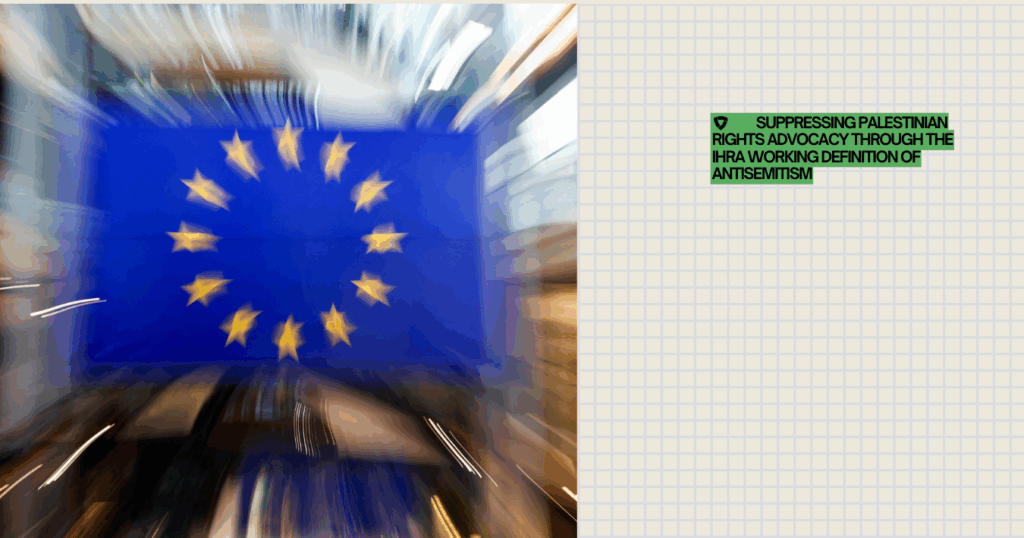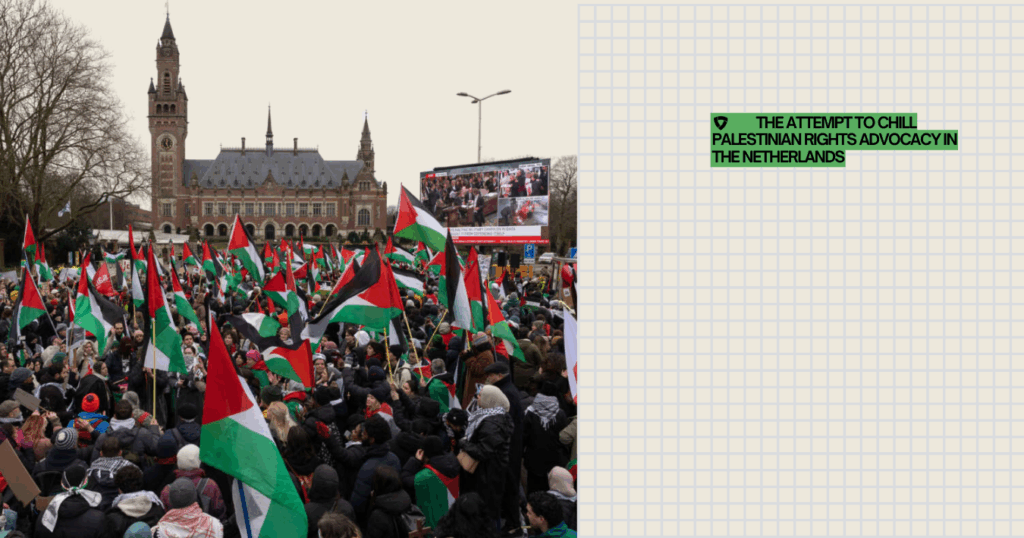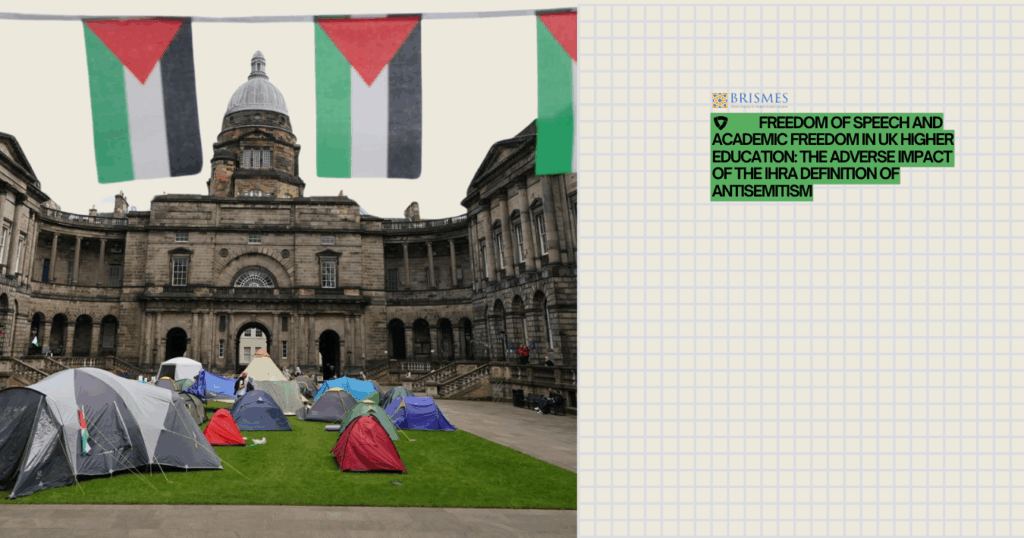EXPOSE
The ELSC monitors, documents, and analyses repressive measures and practices against Palestine advocates across Europe. We produce unique reports that highlight the various forms of repression, ranging from policies, legislations, and case law to police brutality, revealing the systematic and institutionalised nature of repression against Palestine solidarity in Europe, as well as the patterns that emerge across sectors and countries.
Country Reports
Suppressing Palestinian Rights Advocacy through the IHRA Working Definition of Antisemitism
The ELSC’s new report reveals how the IHRA definition of antisemitism is weaponized to silence Palestinian rights advocacy, violating freedom of expression and assembly across the EU and UK. Read the full report here.
The Attempt to Chill Palestinian Rights Advocacy in the Netherlands
The European Legal Support Center (ELSC) has, for the first time, documented attempts to suppress advocacy for Palestinian rights in the Netherlands. The report reveals how unfounded allegations of antisemitism and support for terrorism are used to silence human rights…
Freedom of Speech and Academic Freedom in UK Higher Education: The Adverse Impact of the IHRA Definition of Antisemitism
A new report reveals that the IHRA Definition of Antisemitism has restricted free speech in UK universities, silencing criticism of Israel and harming academic freedom, student wellbeing, and open discussion about Palestinian rights.
See more of our work >>
DEFEND
We combine defensive strategies and impact litigation with monitoring, training, and advocacy to build collective power, while ensuring that our strategies are informed by the political contexts of the movement in solidarity with Palestine, and contribute to movement goals.
CHALLENGE
Through legal strategies, litigation, investigative research, and advocacy efforts, we aim to dismantle the structures that protect corporations, financial entities, and political institutions from accountability for their role in enabling ethnic cleansing, settlement expansion, and military aggression in Palestine.

Have you faced or witnessed repression related to solidarity with Palestine?
Palestine advocates face a wide range of repression, including: Censorship and surveillance • Demonstration bans and arrests • Disciplinary actions and workplace suspensions • Financial repercussions and banking restrictions • Repressive legislation like anti-BDS motions falsely labelling solidarity as antisemitic • harassment and intimidation • Threats to citizenship and immigration status



